Top 10 Places to Visit in Tibet
Tibet is a unique land that lies on the world’s highest plateau in western China. An ancient civilization, the Tibetan people have been living on this high-altitude plateau for thousands of years. A devout Buddhist people, the Tibetan culture is wholly unique in that it is intertwined with the Tibetan Buddhist religion in such a way that it is hard to separate the two.
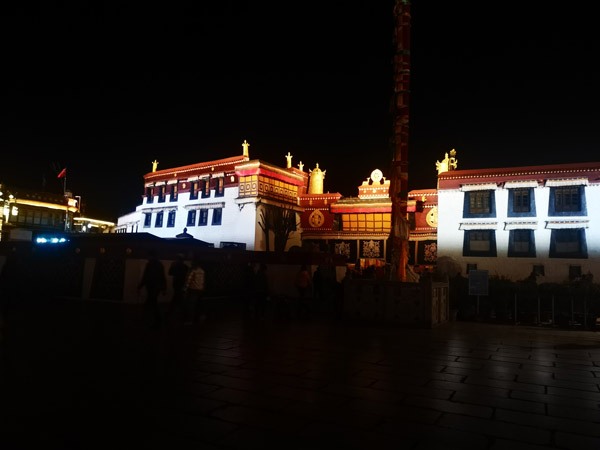
Tours in Tibet are one of the most popular ways to visit this stunning land, willed with ancient temples and palaces, high Himalayan Mountains, and vast sacred lakes. However, knowing where to choose to go can be a hard decision to make, as there are so many destinations that you can visit. Here, we give you the low-down on the top 10 places to visit in Tibet for any tour.
Table of Contents
Lhasa
The capital of the Tibet Autonomous Region and the highest capital city in the world at 3,656 meters above sea level, Lhasa is the starting point for most tours in Tibet, and one of the best places to explore the unique Tibetan culture and religion. Home to several of the best attractions in Tibet, Lhasa is a must-go destination for any tour.
Potala Palace
Built on the Red Hill overlooking the town, the Potala Palace was originally constructed in the 17th century on the site of a 7th-century fortress as the intended center of ancient Tibetan government. Now, the palace is the winter palace of the Dalai Lama, a museum and World Heritage Site, and the most iconic landmark in Tibet.
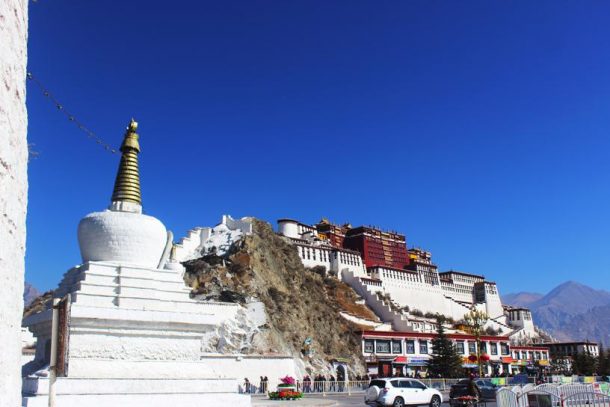
Containing the stunning Red Palace and White Palace, this awe-inspiring building is one of the most spectacular examples of Tibetan, Nepali, Chinese, and Indian mixed architecture in Tibet.
Jokhang Temple
Known as the most sacred temple in Tibet and the most common destination for Tibetan pilgrims to Lhasa, the Jokhang Temple is an ancient 7th-century Buddhist temple that is held in astute reverence by Buddhists from all around the world. Constructed by the 33rd Tibetan king, Songtsen Gampo, the temple is home to one of the oldest statues of Sakyamuni Buddha in existence.
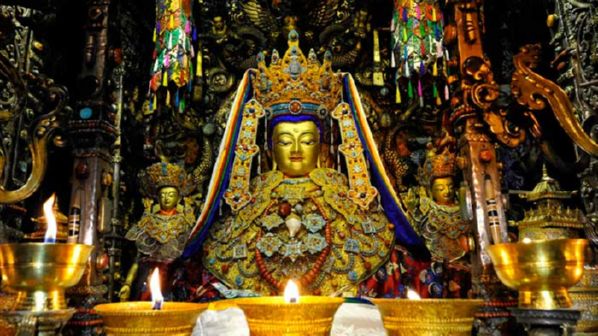
Brought to Tibet by Princess Wencheng on her marriage to the king, the statue is believed to have been blessed by Buddha himself more than 2,500 years ago. The temple is one of the most spiritual locations in Tibet, and the surrounding Barkhor Street is the route of the Jokhang kora, trodden by Buddhist pilgrims for more than 1,300 years.
Ganden, Sera and Drepung Monasteries
One of the main Gelug Monasteries in Tibet, the Ganden Monastery is a unique university monastery that was built in 1409 by the founder of the Gelug School of Tibetan Buddhism Je Tsongkhapa Lozang-Dragpa. Located around 40 kilometers to the north of the city, at Wangbur Mountain in Dagzê County, the monastery is set in a natural amphitheater which gives dramatic views of the surrounding valleys from the famous kora route around it.
Sera and Drepung Monasteries are the other two major Gelug university monasteries in Lhasa, sister monasteries to Ganden and often part of the main attractions of any Lhasa tour. Located a short distance outside the city center, these two monasteries are popular destinations, mainly for the unique monastic debates that are held there in the afternoons.
Shigatse
Shigatse is the second city of Tibet, and lies to the west of Lhasa, along the G318 Friendship Highway at the confluence of the Nyang and Yarlung Tsangpo Rivers.
Tashilhunpo Monastery
Renowned as being the seat of the Panchen Lama, Tibetan Buddhism’s second highest incarnation, the Tashilhunpo Monastery was built in the 15th century by the 1st Dalai Lama. An important cultural and historic monastery, Tashilhunpo lies on a hill in the center of the city and has been described as one of the most beautiful monasteries in the world.
Mount Everest Base Camp & Rongbuk Monastery
Far out in the west of Tibet lies the world’s highest mountain, Mount Everest. Located on the border with Nepal, with the borderline passing right over the summit of the mountain, this vast peak is the most popular destination in Tibet. The biggest challenge in mountaineering in the world, it took almost 100 years of attempts before it was finally conquered in 1953.
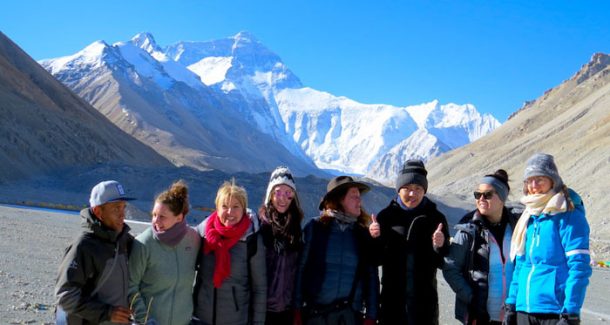
To the north of the mountain’s tourist base camp, around 16 kilometers from the peak as the crow flies, lies the world’s highest Buddhist monastery, Rongbuk. Sitting at the edge of the glacial moraine of the Rongbuk Glacier, which runs down from the slopes of Everest, the monastery has long been a major pilgrim destination for the Sherpa peoples of the western Himalayas.
Mount Kailash and Lake Manasarovar
Far up in the northwest of Tibet lies a strange pyramid-shaped mountain of unusual black rock that is known to be the most sacred mountain in the world in four separate religions. Mount Kailash or Kailasa as it is known in Sanskrit, is deemed to be sacred in Buddhism, Hinduism, Jainism, and Bonism, and is one of the few mountains in China that has never been climbed, due to its sacred nature.
Believed to be the earthly representation of the legendary Mount Meru, the center of the universe, this unique mountain is also the most popular and hardest trekking destination in Tibet, and the location of the most sacred pilgrimage for Tibetan Buddhists and Hindus.
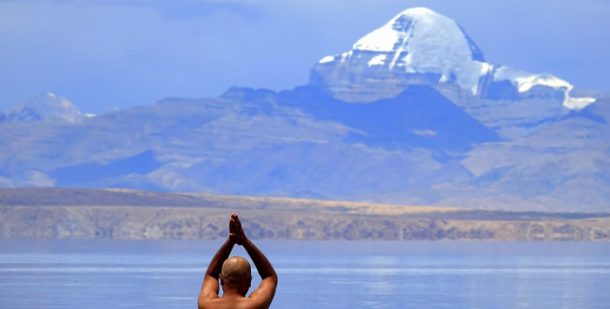
To the south of the sacred mountain lies the sacred Lake Manasarovar, one of the Great Three Sacred Lakes of Tibet. Lying next to its saline twin, Rakshastal, this freshwater lake is considered to be sacred in Hinduism as being made from the mind of Lord Shiva. For Buddhists, the lake is believed to have been the place where Maya Devi conceived Gautama Buddha, and for both religions, it is believed that bathing in the lake can wash away the sins of a lifetime.
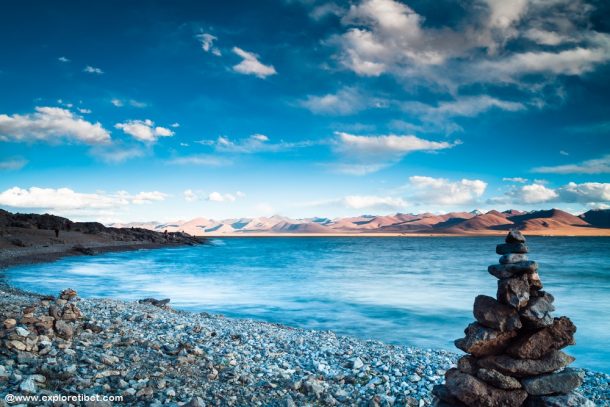
Lake Namtso
Another the Great Three Sacred Lakes of Tibet, Lake Namtso lies around 100 kilometers to the north of Lhasa City, in Damxung County, on the boundary with Nagqu Prefecture. A lake of stunning natural beauty, this “Heavenly Lake’ as it is known locally is also one of the best places for natural bird watching, and the aptly-named “bird island” is home to migratory birds in summer than come up from the lower reaches of the Himalayas to the south.
Lake Yamdrok
The closest of the Great Three Sacred Lakes of Tibet to Lhasa, Lake Yamdrok is believed to have been made from nine talons of gold that a goddess threw into the air to join the many small lakes into one. It is believed that, should this lifeblood lake of Tibet ever dry up, then the entire plateau will become completely uninhabitable for all creatures.
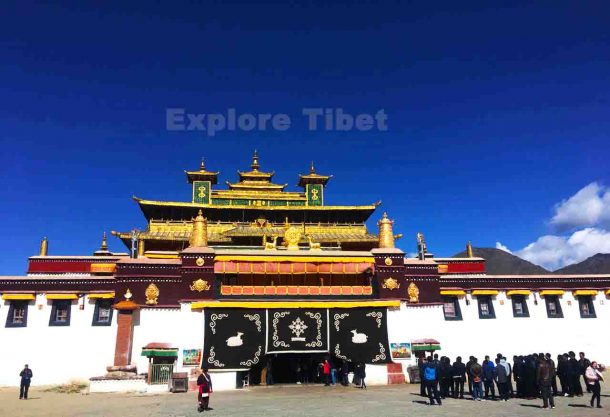
Samye Monastery
Shannan Prefecture of Tibet, to the south of Lhasa, is the cradle of Tibetan civilization, and the beginnings of the great Tibetan Empire. Samye Monastery, located north of Tsedang, is believed to have been the first Buddhist monastery in Tibet, and is said to have been built in around 775 AD under the direction of Trisong Detsen, the 38th Emperor of Tibet who reintroduced Buddhism to the people of the region.
Yungbulakang Palace
One of the greatest sites in Tibet lies not far from the town of Tsedang, to the south, and is believed to have been the first building in Tibet and the first palace. Known as Yungbulakang Palace, this unique building is believed to have been built for the first King of Tibet, Nyatri Tsenpo.
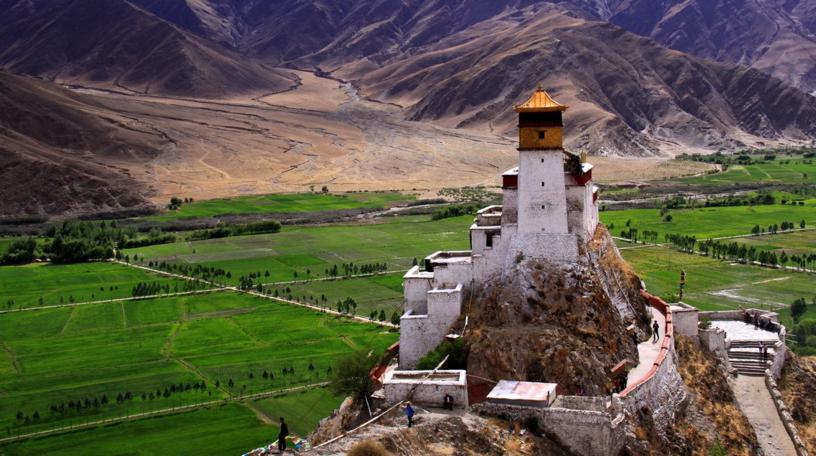
Sitting on a small rocky hill on the eastern banks of the Yarlung Tsangpo River, this ancient palace was the palace of the Tibetan Emperor, Songtsen Gampo until he moved the Tibetan capital to Lhasa in the 7th century. A thousand years after the palace was named as the summer palace of the king, it was turned into a Gelug Monastery by the 5th Dalai Lama.
Recent Posts
The Ultimate Guide to Tibet Tours, Travel, and Trekking Adventures
How to Explore Tibetan Culture
Exploring Lhasa:The Heart of Tibet
All Categories
- About Tibet
- book a Tibet tour
- Buddhism Practice
- Budget Tour
- China-Tibet Train
- Customized Tibet tour
- Historical Sites
- Hot Springs in Tibet
- News
- Photography in Tibet
- Tibet attraction
- Tibet Group Visa
- Tibet Motorcycle Tour
- Tibet Small Group Tours
- Tibet Tours and Tibetan Tour Guide
- Tibet Train
- Tibet Travel FAQs
- Tibet Travel Information
- Tibet Travel News
- Tibet Travel Permit Update
- Tibet Travel Prices Rises
- Tibet Trek
- Tibet Trekking Tour
- Tibet weather and climate
- Tibet Wildlife animals
- Tibet Winter Tour
- Tibetan Buddhism
- Tibetan Cultural Features
- Tibetan Culture and Poeple
- Tibetan Festivals
- What to see in Tibet



